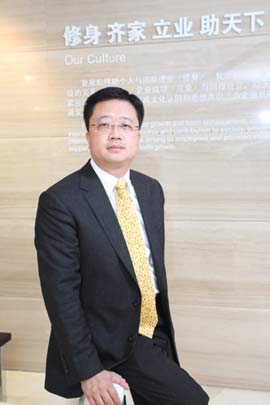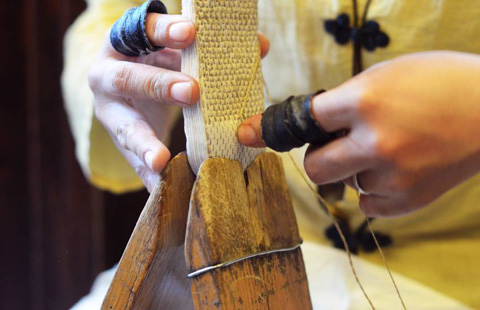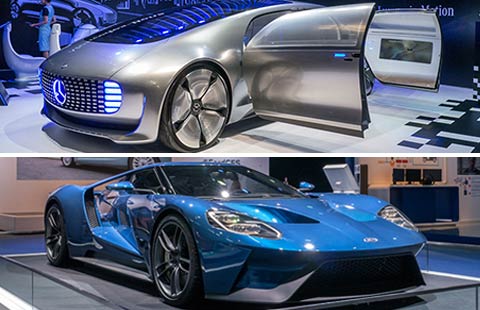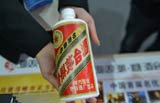Life on the go for Fosun Group CEO
By Cai Xiao in Shanghai (China Daily) Updated: 2012-05-31 10:58
So far, Fosun's investment focuses are financial services and consumption upgrading, such as tourism and luxury expenditure, given China's huge consumption potential, ever-increasing urbanization and on-going industrial upgrading.
In addition to Pramerica Financial, Fosun also cooperated with domestic insurer Yong An Insurance by purchasing 18.3 percent of its shares. According to Liang, Fosun plans to use money from the insurer to carry out more investments in insurance businesses with steady returns and low costs.
"We seek global investment projects. They should have relations with the Chinese market and be able to benefit from the growth of China. Europe has many good opportunities. The most popular investment sector is consumption upgrading, followed by financial services, resources and industrial upgrading," said Liang.
 |
|
Liang Xinjun, chief executive officer of Fosun Group |
China's outbound direct investment came to $68 billion in 2010, up 20.4 percent year-on-year. That's still small compared with the US at $329 billion, according to the United Nations, but more than five times its total five years earlier.
According to the Ministry of Commerce, the outbound direct investment of China is estimated to be $150 billion in 2015.
In 2010, Fosun bought a stake - now 10 percent - for 44 million euros ($55 million) in French resort operator Club Mediterranean SA, which has its eye on China's growing domestic tourism market. In 2011, Fosun took a stake in Folli Follie Group SA, a high-end global retailer based in Greece, with an initial investment amount of 84.58 million euros.
According to Liang, Club Med and Folli Follie are leading companies in their specific sectors and their purchase prices were reasonable.
"Investment opportunities in travel are going to be huge. Now the Chinese are richer and it has become a trend to spend holidays abroad," Liang said, adding that daily spending ranging from 1,200 yuan to 2,200 yuan by each person at a Club Med resort is affordable to the Chinese and its Chinese language service was special.
"More Chinese are fond of one-stop and family traveling, so Club Med is a good choice," he said.
The World Tourism Organization estimates that the number of Chinese tourists going abroad will become the fourth-largest in the world by 2020 and the No 1 by 2035.
Liang said he asked two chefs to work in Club Med Yabuli, the first Club Med Chinese resort, in Heilongjiang province. Neither showed much interest at first. But when Liang asked them after they had lived there a while, they told him the resort was fantastic and did not want to return to Shanghai.
As a financial adviser for Fosun in the deal with Club Med, Andre Loesekrug-Pietri, chairman of European PE company A Capital, told China Daily that Liang is a very strong boss because he has a very clear direction during a deal.
According to Loesekrug-Pietri, there is a lot of money in Europe waiting to be invested, from rich families, corporations and equity investment funds. When there is a good opportunity, they will be prepared to pay, so the competition among investors is very fierce.
"The deal over Club Med took 82 days so you need to have a clear vision and the commitment of the partners to be in. Every day you need to push the deal. Every day there is a risk of misunderstanding and that something could destroy the deal," Loesekrug-Pietri said, adding that if an investor does not have a local project team that can push the deal on a daily basis, he will never achieve any results.
"I think the smartness of Liang in particular is to empower people and give them efficient flexibility so that the deal can be worked on on a daily basis. And he is then there to move it forward and take the decision to go ahead. I think this is something that you see more and more in Chinese entrepreneurs but it is not yet that common," Loesekrug-Pietri said.
Liang said Fosun helps Club Med attract tourists and increase brand recognition by encouraging its affiliated companies and clients to spend holidays and hold conferences at Club Med resorts.
Club Med made a profit of 2 million euros globally in 2011 and the number of Chinese visitors increased by 40 percent. In 2010 it suffered a loss of 14 million euros.
In August, Fosun will help Club Med open a new resort in Guilin, in the Guangxi Zhuang autonomous region, on the banks of the Lijiang River and nestling against more than 20 hills.
Liang said a third one will be opened on an island off Sanya, in Hainan province.
By 2015, five Club Med resorts will be built in China, making China its second-largest market in the world after France.
"We also seek opportunities in Japan. It is not far away from China and has many good tourist resources," said Liang, specifically recommending Hokkaido, a place with many tourism attractions for all seasons. Fosun is now under discussion with local travel services.
"Folli Follie's concept of 'affordable luxury' is expected to be a perfect match with growing consumer demands in China. We will make good use of our local resources, such as retailing chains and advertisement and distribution networks, to help Folli Follie explore more business opportunities and reach more customers in China who can afford luxury products," Liang said.
Sales revenue for luxury goods in China reached 11.5 billion euros in 2011, a 25 percent increase on 2010.
"Because of our retail resources, we can negotiate with retailing groups rather than single retailers, so the expansion of Folli Follie was rather fast," Liang said.
By the end of 2011, Folli Follie owned more than 125 stores on the Chinese mainland, a year-on-year increase of 56 percent. The net profit of Folli Follie last year totaled 91.3 million euros globally, up 7.3 percent on 2010.
Hu Haiyan contributed to this story.
caixiao@chinadaily.com.cn
- China to invest $900b in Belt and Road Initiative
- Kenya in talks with Chinese firm over extension of new railway line
- Toyota recalls Lexus in China
- China makes challenging transition, RMB not undervalued: IMF
- Ancient shoe brand that 'fast-tracks promotion'
- New platform in Guizhou to offer big data as a commodity
- Deutsche Bahn to expand procurement from China
- China's Belt and Road Initiative to boost Turkey's economy: expert

















